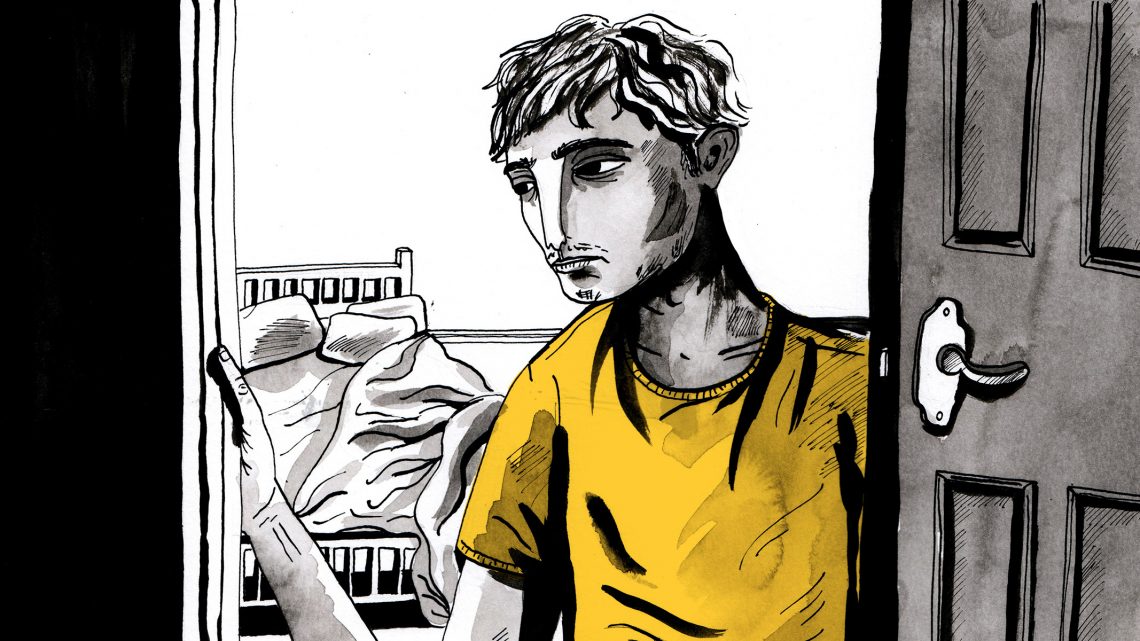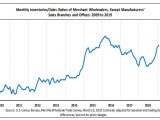
Why I Decided to Start Kink Shaming Myself
March 22, 2019This article originally appeared on VICE UK.
I have been a masochist for as long as I can remember. As young as six years old, watching a CBBC drama with a fey, bookish protagonist being tormented by older boys, I would feel an excitement I can only explain as the beginning of desire. More of a Walter the Softie myself, I was nonetheless drawn to the chaotic, masculine energy of Dennis the Menace.
Later, my sexual awakening occurred at the precise moment I began to be bullied for being gay. I was bullied, like most people, by the popular boys—the most handsome and arrogant and swaggering. The first people I desired were the same ones who treated me with contempt or violence: It doesn’t seem too much of a reach to suggest that violence and desire became conflated. I have been a masochist my whole life—but now, for the first time, I no longer want to be.
Last year, I was seeing a man called Thomas. Almost immediately, he fell into the habit of giving instructions and I fell into the habit of obeying them—apologizing and asking his permission. It was all very ribald and light-hearted, until one night I finished work late and he invited me over to his apartment. When I arrived, he made a Greek salad and I hugged him from behind, kissing his neck as he chopped up the cucumbers. Afterward, he sat down on the sofa, while I lay with my head in his lap, looking up at him, and told him how much I had enjoyed everything he’d done to me the last time we met. He looked down on me with a smirk and, without saying anything, slapped me hard on the ear. It hurt, badly, and my ear began to ring, but to tell him off felt like a breach of contract—so I said nothing. After all, I’d previously told him that he could do anything. Moments later, he hit me again in the same place and my ear rang even louder. Against waves of pain, I tried to smile as he ran his hands through my hair and tugged on a patch of gray.
"You have so much gray hair," he said. "You’re old." Still frozen in a smile, at that moment I began to feel humiliated in a way that wasn't enjoyable. I was furious. I wanted to show him that my submission had always been conditional and could be snatched away at any moment. Who the fuck did he think he was talking to? I stood up, shoved my feet into my shoes without bothering to slide them in properly, and hobbled toward the door.
When I reached it, he said "wait…" and when I turned around he was holding out my bag. He looked confused, maybe even slightly hurt. I snatched it from him.
"Where are you going?"
I said, "I'm not into this," slammed the door and left.
Sally Rooney’s novel Normal People features a similar scene: Marianne, one of the main characters, is tied up in the apartment of a man with whom she's involved in a sadomasochistic relationship. When she experiences a sudden wave of disgust, both for the situation and for him, she demands he untie her and storms out of his apartment. As she leaves, she wonders, "Is the world such an evil place, that love should be indistinguishable from the basest and most abusive forms of violence?" I had read the novel only two weeks earlier and find it hard to believe I wasn’t, in a sense, ripping it off. The scene marks a turning point in Marianne’s character arc, signaling a rejection of self-abasement. That night, listening to Cardi B on the bus ride home, I thought I'd made an equally powerful act of renunciation, that I would never see Thomas or allow myself to be treated that way again. This proved short-lived: The next day, I texted him to apologize for my behavior and asked if he wanted to go to the movies.
Thomas remembers the incident differently and insists that I asked him to hit me. It’s not my recollection, but I’m not ruling it out: I was drunk, he was sober, and it would hardly be out of character. I’m not sure it matters either way because my intention isn’t to depict him as an abuser. Whether or not I asked him to, he hit me because I’d told him it was the kind of thing I liked. The last time we met I’d consented to it explicitly, so how was he to judge when that consent expired? It must be disconcerting when someone tells you "you can do anything to me" and then storms out your door the minute you exercise the power they’ve given you.
I know a number of gay men and women who sleep with men who have had similar experiences. In order to consider how the dynamics of rough sex might differ in a heterosexual setting, along with the commonalities, I spoke with Sarah, a feminist academic based in Glasgow who has been vocally critical of the normalization of violent sex.
I suggest to Sarah that, by engaging in rough sex, gay men and straight women might be fetishizing their own oppression, be that homophobia or misogyny. "I would agree," she says. "I think the key factor is the fetishizing of male domination. But with heterosexual rough sex [where men are dom tops], that’s not at all subversive. By degrading women, men are just playing a hyper-realized version of the position they actually occupy."
I ask Sarah what she makes of the fact that so many people actively consent to and enjoy violent sex. "It's hard to make sweeping judgments on this, and I don’t want to shame anyone for internalizing an oppression. We need to be wary of moralistic sex negativity—the issue is not that it’s bad because it’s distasteful, but that it’s bad because it’s harmful. There can be tons of factors that influence why people consent. It’s not always an autonomous decision. You can be coerced at a societal level." I think this is true. Understandably, most of the discourse around harm in relation to sex centers around consent. This is necessary but insufficient: After all, it’s possible to enthusiastically consent to something that harms you.
What is the nature of the harm violent sex might pose? "It can perpetuate cycles of abuse and warp your perspective about what’s acceptable from a partner,” Sarah says. “It can lead you to think, If I let them do this to me in bed, it’s hypocritical of me to be pissed off at them if they do it elsewhere. If sex only existed in a vacuum in some utopian world, this would be fine, but it doesn’t and never will. The minute you sexually degrade or objectify a woman, that memory is always there."
Although I’m a man and the power relations are different, this chimes with my own experiences. When you create a dynamic of violence and subjugation, it’s hard to seal that off in the bedroom. Eventually, it seeps out. Someone ordering you to suck them off might be fun. What’s less fun is them telling you to go to the store to buy cigarettes because it’s raining and they can’t be bothered to going outside.
When Thomas entered into a relationship with someone else, we made the terrible, inexplicable decision to continue seeing each other as friends. One night in the pub, he claimed the private school he’d attended had "an anti-conservative ethos," and I started ranting about how stupid that was, talking loudly enough for the people around us to hear. The whole time, as I waved my arms and shouted about inherited privilege, feeling myself to be on blistering form, there was the sense that I was only doing this to get a reaction. I was goading him and he understood this. I wanted him to grab me by the throat and tell me to shut the fuck up. Had he done this, I would have gone quiet. I would have said sorry. I would have conceded that, yes, his private school did actually sound pretty radical. At one point, he asked me to change the subject and I said, 'What are you gonna do?" He raised his hand then dropped it and said "nothing." There’s an old joke that goes: "Hit me," said the masochist, "No," said the sadist.
Eventually, he delivered the definitive rejection I thought I’d wanted and I found myself drinking alone, wondering what was wrong with me. Did I make myself impossible to respect by being too submissive? Did he think I was damaged? It occurred to me that slapping and insulting someone from the first time you sleep together might make it hard to develop feelings of affection. I felt like he wanted to dominate me but disdained me for allowing him to do so: Maybe because I enjoyed it too much?
Throughout the months following, sexual masochism bled into the emotional kind. I was drawn to coldness; men who left me on read for days at a time, men who made me apologize for myself. There was the guy who, when I gently made fun of him, told me he "didn't like to be intellectually challenged." There was the man who told me he'd probably given me gonorrhoea, then ignored me for a week before getting back in touch with an enthusiastic message about the new man he'd met and an invitation to join his book club (I declined). I wasn't attracted to these men despite the awful way they treated me, but because of their aloofness, rather than being a flaw, was central to their appeal. Kindness or enthusiasm, on the other hand, I considered to be "begging it"—nothing was less erotic than being treated with basic human courtesy.
I had been in an abusive relationship before, prior to this period, and it goes without saying that it wasn't sexy or fun. For all the drama, for all the violence and threats, it was tedious. The last thing I wanted was to replicate that experience, but still I found myself romanticizing unhealthy power dynamics, usually while listening to Lana del Rey. Red flags were my biggest fetish. Given my history, this was insane. I would have run head-first into an abusive relationship with any of the men I dated last year—the only thing that saved me was the fact that none of them wanted to.
As well as feeling that rough sex was harming me, I worried that I was causing harm. The direction of power in sex is rarely linear. You can be submissive and still be bossy: sentences beginning "make me…" are still instructions. In Normal People, Marianne says, "You're hardly a submissive if you only submit to things you want to do." By this metric, I’m hardly a submissive. The sex I enjoy often amounts to: "Force me to do the things I already find most gratifying." There’s nothing wrong with this, but it’s important to recognize that submissives can be, in their own way, just as domineering. Leopold Sacher-Masoch (the author of Venus in Furs, from whom masochism derives its name) would pressure his wife into sleeping with other men so he could experience the pleasurable humiliation of being cuckolded. Who’s really being degraded there?
In the case of two gay men, if the sexual dynamic is based around "I am weak and you are strong," often expressed as "I am feminine and you are masculine," then both partners are playing to the same insecurities—they’re just coming at it from different angles. I worried that, by validating the masculinity of someone dominating me, I was stoking their internalized homophobia. It seems plausible to suggest that making someone feel, temporarily, like a "real man" might perpetuate the anxiety that they’re not.
For all these reasons, I have made the decision to stop having this kind of sex, even if only for a while. It was damaging my relationships, making me feel worse about myself, and, perhaps, in the end, harming other people too. I want to transcend the idea that sexual compatibility is the most important thing. One friend assures me that "desire is surprisingly malleable" and, if I was skeptical at first, I’m beginning to understand how this could be true. I've dated a couple of men since who weren't at all domineering or violent. It's been a pleasant surprise to discover that sex can still be exciting without being degrading, although at times it's taken effort not to find it boring.
At the end of Normal People, rather than rejecting her instincts toward masochism, Marianne finds a healthier context in which to express them. Her boyfriend dominates her lovingly and with respect, understanding "it wasn't necessary to hurt her: he could let her submit willingly, without violence." Maybe such an accommodation is the best I can hope for.
Sign up for our newsletter to get the best of VICE delivered to your inbox daily.
Follow James Greig on Twitter.


